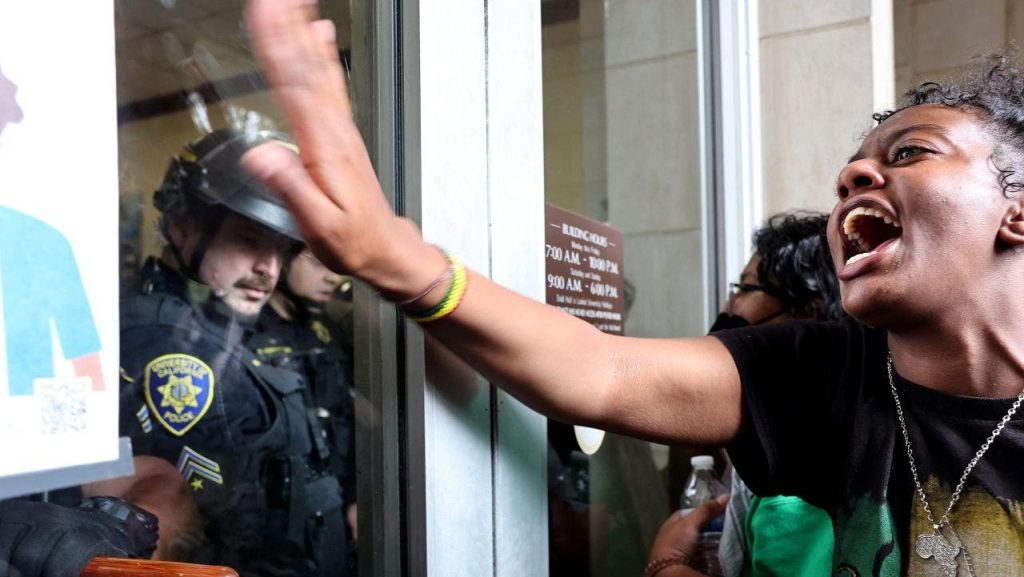Anti-Israel protests at the University of California Los Angeles have led to clashes between protesters and police, with protesters rebuilding an encampment on campus and blocking access to parts of the campus. UCLA officials warned demonstrators to disperse, but they were met with resistance. Multiple police departments collaborated to quickly end the protests, with footage showing physical altercations between law enforcement and protesters. Administrative Vice Chancellor Michael Becks and Associate Vice Chancellor for Campus Safety Rick Braziel stated that the demonstrators’ activities were disrupting campus operations and warned that those who did not disperse would face arrest and disciplinary action.
The protests at UCLA have caused significant disruption and led to clashes with authorities. The latest round of protests coincided with UCLA Chancellor Gene Block’s appearance before the House Education Committee to discuss anti-semitism at U.S. universities. Block admitted that the university should have been better prepared to remove the encampment if the safety of the community was at risk. The tensions on campus reached a peak on April 30 when police arrested over 200 individuals at a large encampment. Since then, there have been sporadic demonstrations which have resulted in further arrests, including 40 people on May 6.
The clashes between protesters and police at UCLA have raised concerns about the handling of demonstrations on campus. UCLA Police Chief has been reassigned after criticism of the response to the anti-Israel protests. The university has been criticized for not being prepared to handle the protests and for allowing the situation to escalate. The demonstrations have led to disruptions on campus and have forced officials to take action to maintain order and ensure the safety of the community.
The protests at UCLA have highlighted the complex and contentious issues surrounding the Israeli-Palestinian conflict. The demonstrations have sparked debates about free speech, campus safety, and the role of universities in addressing political and social issues. The clashes between protesters and police have underscored the challenges faced by universities in balancing the rights of protesters with the need to maintain order and ensure the safety of students, faculty, and staff.
The protests at UCLA have reignited discussions about anti-semitism, free speech, and political activism on college campuses. The clashes between protesters and police have raised questions about the role of law enforcement in responding to protests and maintaining order. The university’s response to the protests has been scrutinized, with critics calling for better preparation and coordination to prevent further disruptions and confrontations. The ongoing tensions on campus have highlighted the need for dialogue and engagement to address the underlying issues and promote understanding and cooperation among all members of the university community.
Overall, the protests at UCLA have exposed deep divisions and tensions surrounding the Israeli-Palestinian conflict and the broader issues of free speech, campus safety, and political activism. The clashes between protesters and police have underscored the challenges faced by universities in managing controversial demonstrations and maintaining a safe and inclusive campus environment. The university’s response to the protests has come under scrutiny, and there have been calls for greater accountability and transparency in addressing the underlying issues and concerns raised by the protests. Moving forward, there is a need for dialogue, collaboration, and understanding to bridge the gaps and promote a more inclusive and harmonious campus community.


